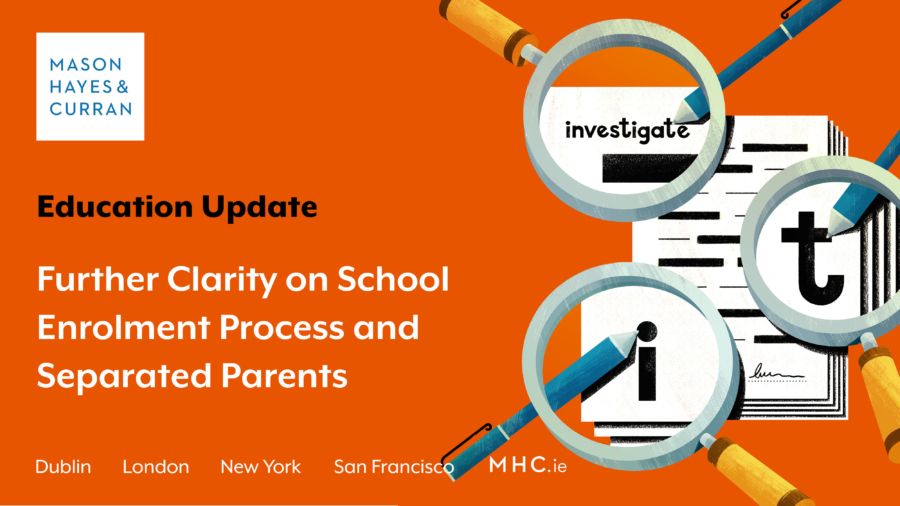
In a recent case before the Circuit Court, Board of Management v A Father, a divorced father complained that he had been discriminated against on the grounds of gender when a school enrolled his daughter without his consent. The Circuit Court held that he had not been discriminated against.
Facts
The father is the joint legal guardian of his daughter. In January 2020, his ex-wife applied to the school for a place for their daughter. A school place was offered and accepted by the child’s mother later that year. The father was informed of his daughter moving school and emailed the school at the end of May 2020 indicating that the school was obliged to obtain the consent from both parents before the child could be enrolled. The father stated that he wanted the enrolment rescinded pending a Court order.
At no stage did the father provide the school with any Court Order that suggested that his consent was required for the enrolment of his daughter in the school. The only Court Order that was provided by the father was provided on the day of the hearing before the WRC. This Order was a 2018 Polish Court Order dealing with the divorce of the parents. That Court Order did not make any orders concerning the child’s education. The position of the school was that the child’s enrolment was in order and valid and it was in accordance with the enrolment policy of the school, which required the signature of only one legal guardian.
The father then made a complaint to the WRC under the Equal Status Acts 2000-2015. His complaint asserted that had been discriminated against by the school on the grounds of gender. The school opposed this claim on the basis that it was required by the Admissions Act to enrol the student once the application complied with its enrolment policy. Significantly, the school contended that if it did not comply with the Act it would face a Section 29 Appeal for a refusal to enrol.
WRC decision
The Adjudication Officer found that the father had raised an inference that he was treated less favourably than his daughter’s mother on the grounds of gender.
Circuit Court decision
The Circuit Court allowed the school’s appeal and overturned the WRC decision. It held that the Court must ascertain what evidence exists to establish that the treatment received by a complainant is less favourable than the treatment of a different gender in similar circumstances. The Court further held that it is for the party who alleges gender discrimination must first make out a case of the prohibited conduct.
The Court noted that where any similar complaint affects a child’s rights, the best interests of the child is the primary consideration. This meant that the child’s rights must be considered first and other competing interests such as the rights of parents must be considered after that. The Court determined that the child’s right to education is a very basic and important right and that parents or guardians have a common obligation to promote the education and training of their children.
The Court found that family disputes such as issues concerning gender rights of parents should not be used by a parent to usurp the fundamental rights of a child. Interestingly, the Court noted that the WRC should not be used by parent or a guardian in upholding their gender rights as a substitute for a Court in dealing with what are essentially family law disputes regarding the education of a child.
Conclusion
The judgment provides further clarity for schools who are required by law to enrol students in accordance with their enrolment policy but do not seek consent from both parents. It makes it clear that parents should try and resolve the dispute between themselves regarding the education of their child and failing that it is ultimately a matter for the family law courts. Parents should not involve schools in family law disputes.
For more information on the likely impact of this judgment, please contact a member of our Education team.
The content of this article is provided for information purposes only and does not constitute legal or other advice.






